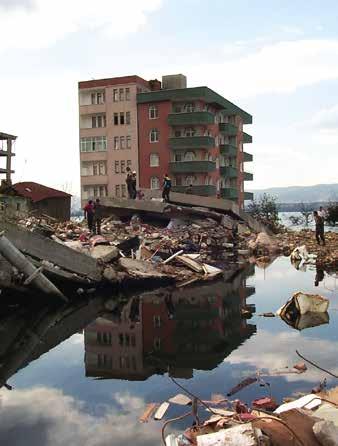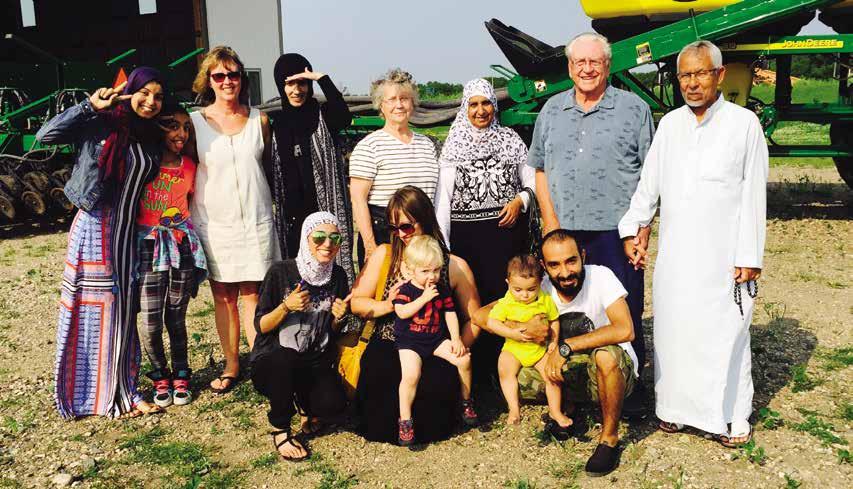
3 minute read
Teaching New Americans: Our Journey Together
Students complete an activity in Leah Juelke’s ELL class at Fargo South High School. Photo by Andrew Cullen. Photo by Andrew Cullen
By Leah Juelke
Advertisement
My students are all refugees or immigrants, and all have amazing stories about their lives before coming to America. I started the “Journey to America” narrative writing project last year as a way for the ELL (EnglishLanguage Learner) students in my English 4 class to practice narrative writing and short story elements.
I am an ELL English teacher at a public high school in Fargo, North Dakota. I work in one of the largest ELL high school programs in the state, which currently serves about 110 refugee and immigrant students—10 percent of the school’s student population. My students represent more than fifteen countries of origin; the students in my ELL English 4 class are all refugees or immigrants who have been in the United States for only two to five years.
With this project, my hope was that others could learn from the personal stories the students shared with me in and outside of class. These stories were about growing up in refugee camps, hiding under beds while villages burned, and losing entire families to war. These stories were also about the culture shock of seeing snow or touching a computer for the first time. I was intrigued by these stories and wanted others to understand more about our resilient population of New Americans.

Laura Restrepo and Chandra Dulal, center, work with other students during an activity in Leah Juelke’s ELL class.
Photo by Andrew Cullen.
Last year, the students wrote the first volume of Journey to America: Narrative Short Stories, published in a printed anthology and online. Soon after, the Fargo School Board invited students to present their stories at a board meeting; a local radio station interviewed the students, and the story was picked up by Minnesota Public Radio. I was thrilled that people in our area were interested in becoming more culturally aware.
This year, with the help of an Eleanor Laing Law Grant, I was able to bring Lost Boy of Sudan John Bul Dau to Fargo South. He spoke to the entire school in October about his experiences as a Sudanese refugee. Now a successful CEO, author, and president of his own organization, John inspires other refugees and immigrants to make the most of their lives. After the assembly, John worked one-on-one with the ELL English 4 students, answering questions about his life and giving the students advice on how to write a good story. Over the next eight weeks, students from North Dakota State University (NDSU), Minnesota State University Moorhead, The Giving Plus Learning Program, and NDSU professor Kevin Brooks’s classes, as well as volunteers from The Refugee Consortium, came to work with students on technical writing aspects of their stories. In addition to this wonderful help, my student teacher, Kalai Laizer, who is native to Tanzania, helped inspire students during the unit and wrote her own “Journey to America” story.
This year’s Journey to America volume was again published in a print anthology and online. The students presented their stories during a public reading at NDSU on January 27, 2016, to help further cultural understanding in the Fargo-Moorhead community.
In the last three years, I have sometimes struggled with being able to understand the cultural backgrounds of all of my students. I speak Spanish fluently, but that doesn’t help much, since only two of my students’ native language is Spanish. I have tried to teach myself a couple of words in different languages. Although the students often giggle at my mispronunciations, they are thrilled that I am trying to connect with them. I traveled to Tanzania and South Africa through a Fund for Teachers grant in summer 2015 to learn more about African cultures. Attending cultural celebrations, diversity courses, and extensive traveling has made me a more culturally competent educator. Helping the growing population of refugees and immigrants with limited English proficiency in Fargo has been a wonderful experience. Sometimes, I find myself giving out donated clothing items to students after class, collecting old prom dresses, or helping students make phone calls for various appointments. My drive to help my students is fueled by their respect, compassion, and eagerness to learn. Their journeys may have ended when they arrived in Fargo, but mine began when I met them.
LEAH JUELKE is a Fargo native who has been teaching for nine years. She holds a bachelor’s degree in English education and ELL and a master’s degree in curriculum and instruction from North Dakota State University.










